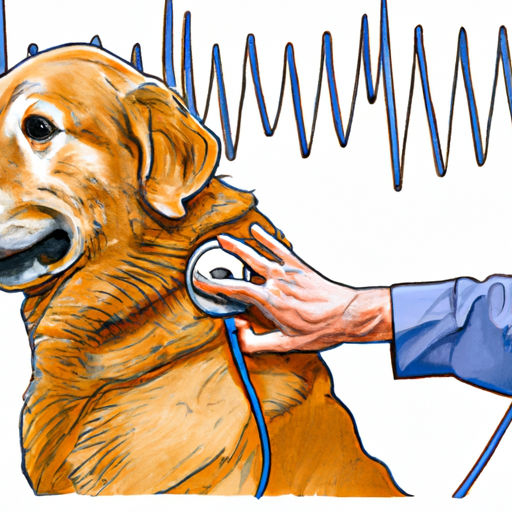As a caregiver to your furry friend, it’s important to understand the essentials of their health, including their heart rate. Let’s dive into the world of canine heart rates.
Understanding Your Dog’s Heart Rate
Just like humans, a dog’s heart rate can give vital information regarding their health. The heart rate can indicate stress, fear, or even underlying health issues. However, it’s important to remember that a dog’s heart rate varies significantly depending on their size, age, breed and overall health.
Typically, a resting or relaxed dog’s heart rate ranges between 60 to 160 beats per minute (bpm). However, puppies and smaller dogs have a higher heart rate, often reaching up to 220 bpm.
How to Measure Your Dog’s Heart Rate
- Find a quiet place: This will keep your dog relaxed, providing a more accurate resting heart rate.
- Locate your dog’s pulse: This can be found in the femoral artery in the inner thigh. Alternatively, you can place your hand over their heart, located on the left side of their chest.
- Count the beats: Do this for 15 seconds, then multiply the number by four to get the bpm.
Normal Heart Rate Ranges for Dogs
| Dog Size | Normal Heart Rate |
|---|---|
| Small dogs & Puppies | 90-220 bpm |
| Medium dogs | 70-120 bpm |
| Large dogs | 60-100 bpm |
When to Worry About Your Dog’s Heart Rate
An elevated heart rate in dogs, also known as tachycardia, can be a cause for concern. It could be due to anxiety, fear, heatstroke or even heart disease. On the flip side, a dangerously low heart rate, called bradycardia, might suggest a problem with the dog’s heart or brain.
If your dog’s heart rate deviates greatly from the normal range, it’s time to consult a vet.
Keeping Your Dog’s Heart Healthy
- Regular exercise: This strengthens the heart and aids in maintaining a healthy weight, reducing the risk of heart disease.
- Balanced diet: High-quality dog food can prevent obesity and heart disease.
- Regular vet check-ups: These help detect any potential heart issues early.
Frequently Asked Questions
Q: How much exercise does my dog need to keep their heart healthy?
A: This depends on the breed, age and health of your dog. Generally, dogs should get at least 30 minutes to two hours of exercise daily.
Q: Can stress affect my dog’s heart rate?
A: Absolutely, stress can elevate a dog’s heart rate. Ensuring your pet has a calm and safe environment can help keep their heart rate normal.
Q: Are certain dog breeds more prone to heart issues?
A: Yes, some breeds like the Cavalier King Charles Spaniel, Doberman Pinschers, and Great Danes are genetically more prone to heart diseases.
Q: Can I use a human heart rate monitor on my dog?
A: While it’s possible, it’s not recommended. It’s best to use a monitor specifically designed for pets or to manually check their pulse.



